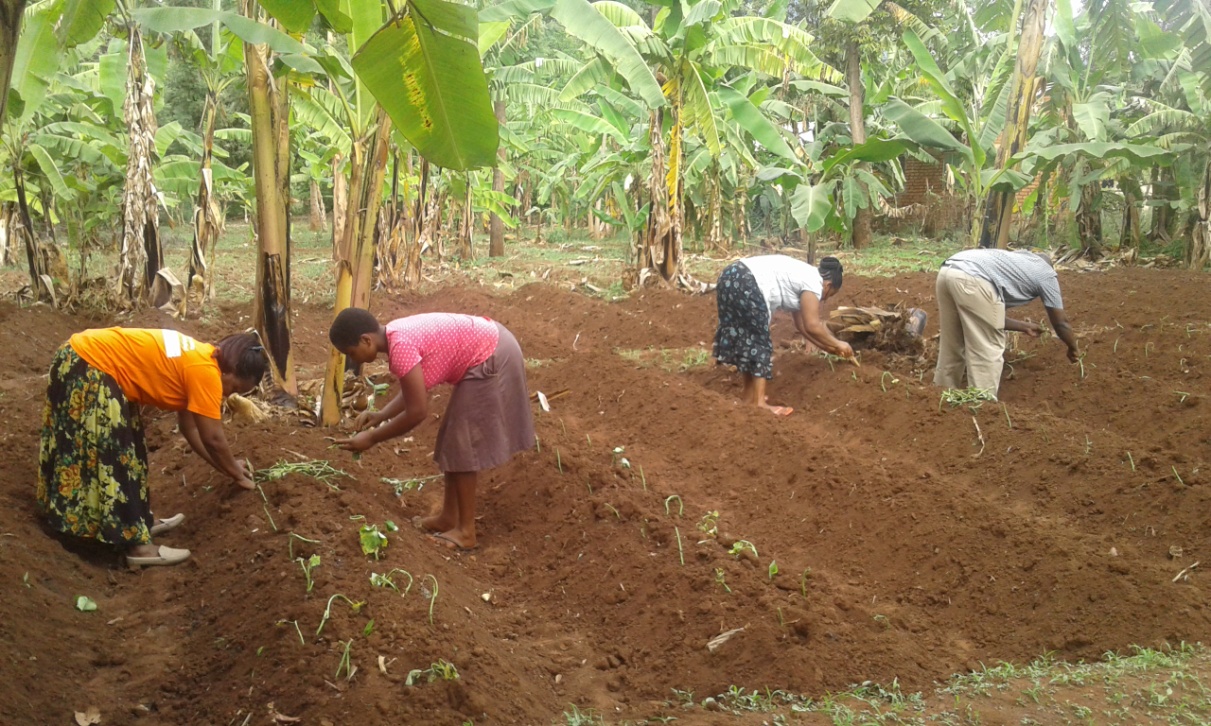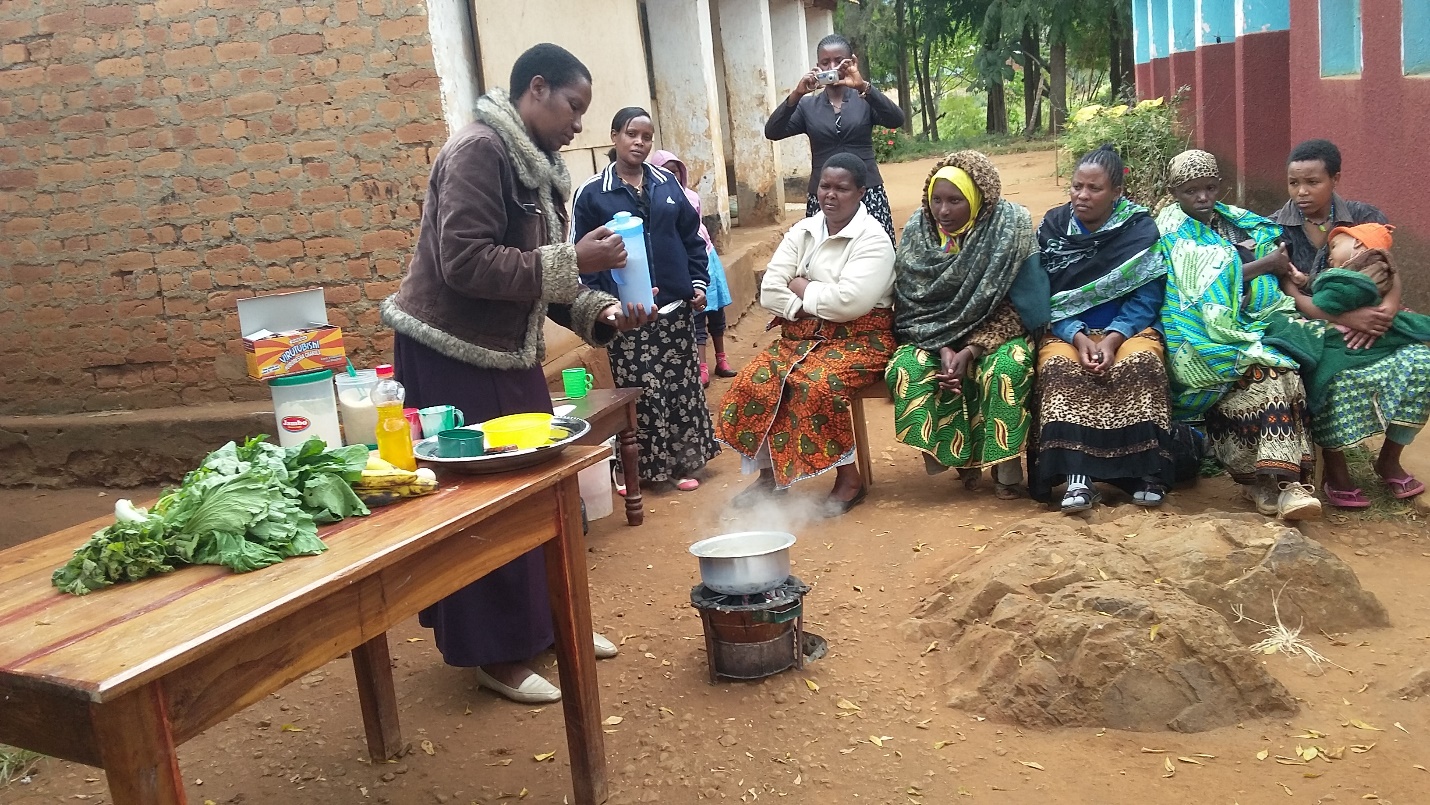The Mwanzo Bora Nutrition Program (MBNP) was a USAID-supported initiative implemented through Feed the Future (FtF), Global Health Initiatives (GHI), and Africare Tanzania. MBNP was designed to support the Government of Tanzania’s (GoT) efforts to bring about significant and measurable improvements in the nutritional status of Tanzanian people through the implementation of the National Nutrition Strategy, the Tanzania Agriculture and Food Security Investment Plan (TAFSIP), and other relevant policies and strategies.
The overall goal of the program was to improve the nutritional status of children and pregnant and lactating women in Tanzania, with a specific focus on reducing maternal anemia and childhood stunting by at least 20% in the Manyara, Morogoro, and Dodoma regions. The program also supported community- and health facility–level interventions in Zanzibar.
To achieve this goal, the Mwanzo Bora Nutrition Program had two principal objectives:

Preparation of demonstration site for Orange Fleshed Sweet Potato.
A core component of the Mwanzo Bora Nutrition Program (MBNP) was the engagement of government and civil society in the development of a vibrant national platform for nutrition, with an emphasis on the first 1,000 days of a child’s life.
The nutrition interventions aimed to promote the adoption of positive behaviors at the household and community levels through Social and Behavior Change Communication (SBCC). At the sub-national level, the program worked through local CSOs to support efforts in building the capacity of local councils’ new and existing human resources—including nutrition officers, as well as health, agriculture (including livestock), and community development extension workers—to provide basic nutrition services aimed at reducing childhood stunting and maternal anemia.
To achieve the two principal objectives, the Mwanzo Bora Nutrition Program was designed to implement activities within the nutrition component represented by six key result areas:
Improved Enabling Policy Environment for both Agriculture & Nutrition

Demonstration of complementary food preparation to children above 6 months to beneficiaries
The Manyara Regional Civil Society Network (MACSNET) was one of the project partners that contributed to the overall program goals through the Social and Behavior Change Communication (SBCC) component in partnership with Africare Tanzania. The organization implemented the program in two districts: Babati Town Council and Hanang District Council in the Manyara region. To facilitate implementation, the intervention utilized Community Health Workers in every village and/or street as change agents.
Interventions
At the community level, interventions focused on Agriculture for Nutrition, and at the health facility level, they included the monitoring of vitamin A supplementation for children, distribution of Fefol to pregnant women, and clinic attendance tracking for pregnant women. Additionally, orientations related to the Siku 1000 model, which aimed to address maternal anemia and childhood stunting, were conducted and monitored.
In contributing to the overall program goals, the organization worked to implement activities aligned with three Intermediate Results:
Partners and Beneficiaries
Local communities—especially children under two years and women of reproductive age in all targeted districts—along with the central government of Tanzania, were regarded as both beneficiaries and partners of the project.

+255 716 993 688
exd@csp.or.tz | info@csp.or.tz
Mrara street, Mruki road TTU Regional Building – Ground Floor P.O. Box 515 Babati – Tanzania
Sign up to receive updates about Civic Social Protection Foundation (CSP),
campaigns, and ways to get involved. It’s free to join.
Copyright © 2025 Civic Social Protection Foundation (CSP): All Rights Reserved